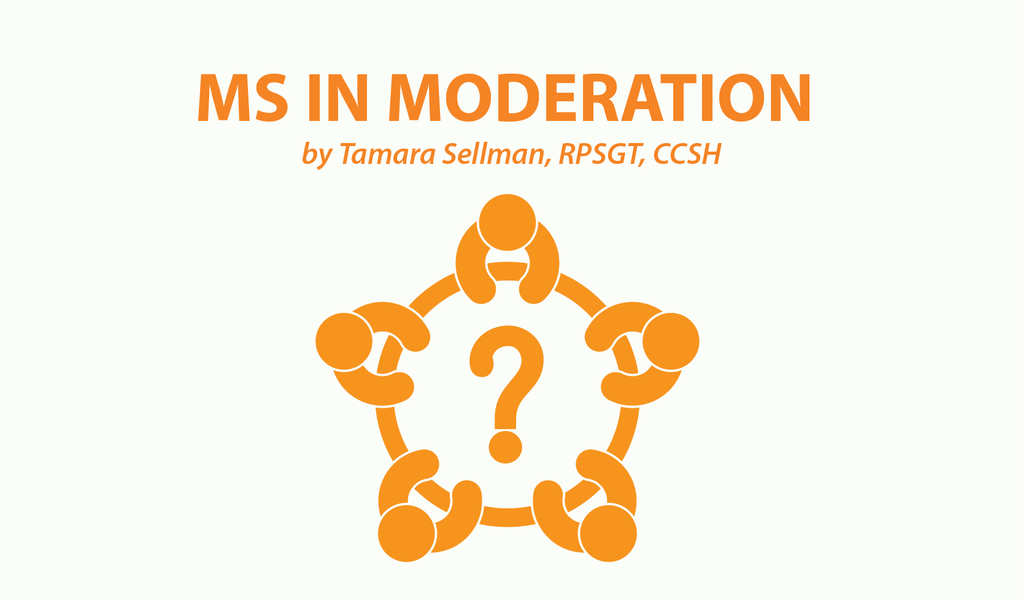Why It’s Important to Observe Your Diagnosis Anniversary
Written by |


On March 27, 2013, my primary care physician called me about MRI results from the day before. He and the radiologist concurred; they had found evidence of brain lesions consistent with multiple sclerosis.
Following protocol, he sent me to the best specialist in Seattle to confirm diagnosis. His was a preliminary diagnosis. In the seven weeks to follow, I had blood work done, received a spinal tap, and participated in myriad other tests. I remember trusting him, feeling confident in this new finding. After all, it explained so much.
The journey to diagnosis
In 2010, I’d had two sleep studies after I found myself face-planting into my laptop during teleconferences with my editorial clients. I knew working moms were tired, but this was ridiculous!
I was diagnosed with Upper Airway Resistance Syndrome (UARS), a problem of broken sleep caused by allergies and postnasal drip. This ruled out sleep apnea and explained one source for my sleep deprivation.
I also was diagnosed with “possible idiopathic hypersomnia” (IH). In other words, I grew excessively sleepy during the day despite adequate sleep at night and they couldn’t explain why. This sort of ruled out narcolepsy; IH is often a basket diagnosis when root cause for severe daytime sleepiness, and other symptoms of narcolepsy is not forthcoming. My nap test wasn’t conclusive.
Treatment was limited to an oral device to open my airway during sleep, side-sleeping, more allergy drugs, and use of a personal steam inhaler.
My sleep doctors didn’t misdiagnose me. Without other MS symptoms presenting to raise red flags, they had no reason to look elsewhere.
In 2012, my sleep problems prompted my return to sleep technology school. The sense of uncertainty about my inordinate daytime fatigue prompted the lifelong journalist in me to ask, “Why?”
It was during finals before spring break that I noticed the paresthesias, leg tremors, and an inability to comprehend written words. My preliminary diagnosis did more than explain these, it gave me clarity.
The power of clarity
At the time, I was aware of the lack of research and solutions for both narcolepsy and UARS. An MS diagnosis actually broadened my treatment options.
Two good friends of mine have had MS for years. Both continue to lead active lives in spite of their illness. One works as a critical care nurse; the other manages an independent bookstore. Thanks to them, I never saw MS as an automatic “death sentence.” In fact, I felt more hopeful.
Later, I reviewed my own sleep study results with an educated eye. I discovered an unusual sleep architecture involving large amounts of REM sleep, and something called “alpha intrusion.” Basically, my sleeping brain was (and continues to be) “on the fritz” — but now I know why.
Reviewing a lifetime of symptom clusters, I also identified patterns suggesting I probably have had MS for most of my life. Maybe those “growing pains at age 9 were actually “MS hugs.” Who really knows?
All I know is that, at age 46, this suggests my progression is slow. My neuro says that with treatment for MS, I probably will live my normal life expectancy with most of my current function intact. Talk about hope!
Honestly, I was angry, too. The diagnosis came during a relapse at a time when I needed every brain cell I had to do homework. I faced a six-week, 200-hour practicum at the hospital, as well. But there was a bright side: I qualified for a modafinil prescription to offset daytime fatigue.
I also lost my appetite, had trouble sleeping, and cried a lot during the weeks I waited for confirmation. I developed “diagnosis brain,” a temporary shift in focus caused by the sudden, and irreconcilable awareness that your body is no longer yours to control. It wasn’t much different from “pregnancy brain.”
Why we need to honor the day of diagnosis
A friend once asked why I wished to “celebrate” a diagnosis.
Like childbirth, or the loss of a loved one, a chronic illness diagnosis marks a defining moment in one’s life that completely reshapes your sense of self.
I now see it not as a curse or a condemnation, but as an opportunity. For four years now, I’ve found strength in new challenges. I better understand and respect my limitations. I’m better at practicing self-care.
People with MS learn quickly that one never can assume what tomorrow will bring. Today is all there is. While I’m in remission, I remain in active pursuit of the life I want now. Despite ongoing symptoms, I’m still running on most cylinders. And that’s definitely something to memorialize.
***
Note: Multiple Sclerosis News Today is strictly a news and information website about the disease. It does not provide medical advice, diagnosis, or treatment. This content is not intended to be a substitute for professional medical advice, diagnosis, or treatment. Always seek the advice of your physician or other qualified health provider with any questions you may have regarding a medical condition. Never disregard professional medical advice or delay in seeking it because of something you have read on this website. The opinions expressed in this column are not those of Multiple Sclerosis News Today, or its parent company, Bionews Services, and are intended to spark discussion about issues pertaining to multiple sclerosis.



Matt
Good read though you've highlighted the IH issue. Possible IH diagnosis should be given on a lack of a Narcolepsy diagnosis not the other way around, and it shouldn't be a catch all as it has its own set of diagnostic criteria. But lots of doctors seem clueless on that.
Tamara Sellman
Thanks for writing, Matt. Actually, my doctor gave me an IH diagnosis based on the basis of an inconclusive MSLT. Sorry if that wasn't clear. The MSLT is not without its flaws and more tests come back inconclusive than you might think. "Test–Retest Reliability of the Multiple Sleep Latency Test in Central Disorders of Hypersomnolence." This was, of course, before we even knew I had MS, and in concert with the UARS dx which, even when treated, may cause residual hypersomnia. Because of other aspects of my test, IH was really the only option that served me and my doctor at that time.
I am aware of the diagnostic criteria (just wrote a chapter on hypersomnias for the latest edition of the PSG textbook), and realize it's not a catch all, but by the same token, idiopathic does mean "mysterious" or "unexplained" for a reason. I also have a great sleep doctor, certainly not clueless. I worked for his practice and am confident I was not given a bum diagnosis.
You might find it interesting to note that narcolepsy and MS continue to be examined from a genetic angle because of continued theories about connections between the two that have been tossed around since the 1960s. "For Multiple Sclerosis Patients, Sleep Disorders Such As Narcolepsy Should Also Be on the Clinician’s Radar" and "Narcolepsy with cataplexy (NT1) and Multiple Sclerosis. UPDATE" are interesting recent commentaries. Of course, no relationship has been found that is conclusive (that's science for ya), but it's not been ruled out because, frankly, not enough is known about the genetic and environmental factors of either disorder.
The good news is this: Since I published this piece, I have completely resolved my hypersomnia. I went back for another sleep test last year, and my UARS was scratched for moderate OSA, which was the root cause of the hypersomnia. Upon treating that, I was able to completely eliminate Provigil use and nap frequency is <1x monthly (if I am sleepy, it is from the baclofen!). I cannot tell you how life altering that has been. No more mysteries or unexplained sleepiness cutting into my work life! Which is why I continue to prompt others with MS to have a sleep test if their fatigue is severe, because it can absolutely be the result of another unrelated problem that has yet to be identified. Tamara
Paul Rawady
Incredibly interesting. I didn't know if anyone else had both MS and IH. For me it was MS that I learned about first. I have had MS for almost twenty years, but I was only diagnosed with IH four months ago. I had always assumed my IH symptoms were just part of having MS. I was wrong. Although I was happy that IH was diagnosed and treatable, I was devastated upon realizing it was at least two decades late. More people with MS should be checked for IH. Paul.
Tamara Sellman
Thanks for writing, Paul,
IH is typically a stand-alone condition, but hypersomnia is a frequent symptom of other conditions. Once an origin for the excessive sleepiness can be identified, it's probably no longer IH as a condition, but a secondary issue.
For instance, people with sleep apnea may also have residual hypersomnia even after they treat their sleep apnea successfully.
If your MD has given you an IH diagnosis, it definitely means you have this other sleep disorder in addition to MS. You can have sleep breathing issues that don't amount to a sleep apnea diagnosis, for instance, but which can still spawn significant daytime sleepiness.
It also means you are probably able to get a prescription to treat it (which is usually something like modafinil, which is hard to get coverage for and is expensive). I hope whatever happens, you can get your energy and clear head back once you treat it!
Best,
Tamara